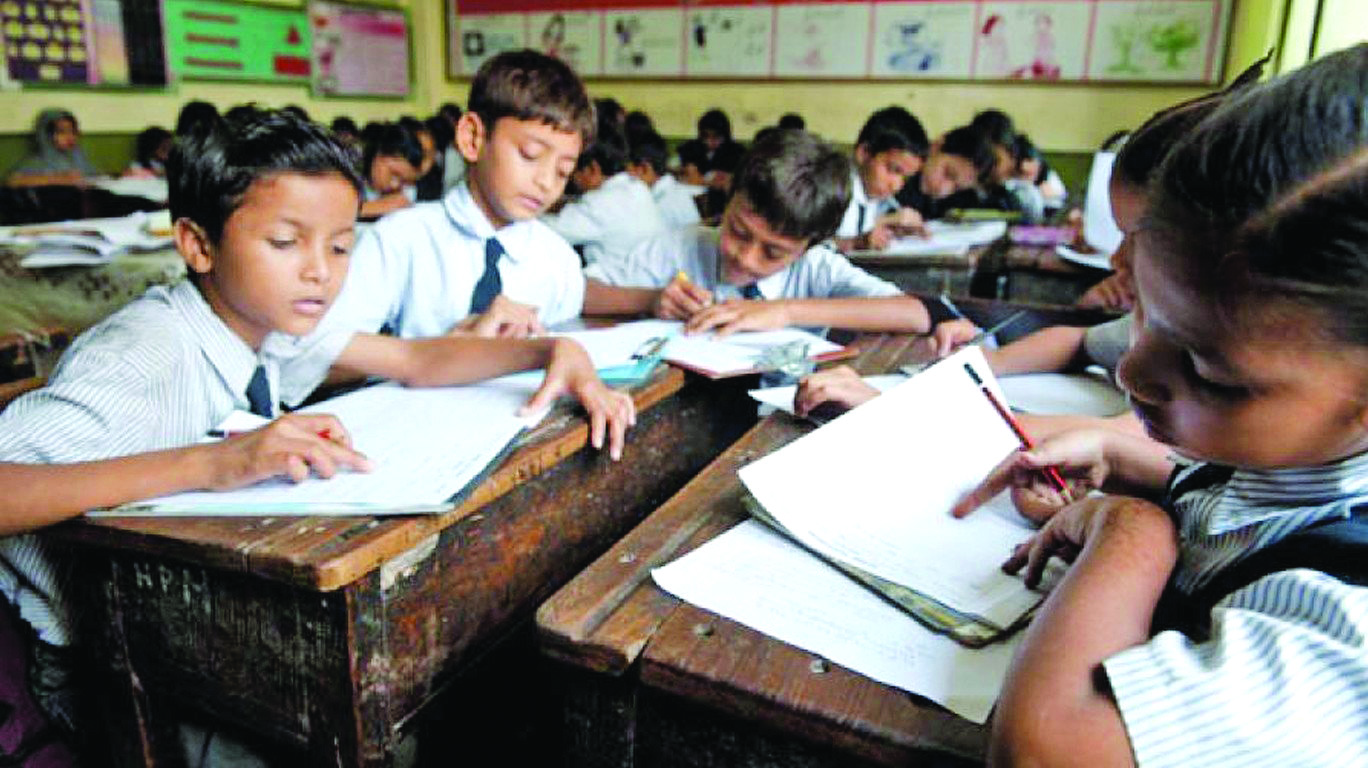Nasrin Modak Siddiqi (Mumbai)

Class V children in Maharashtra: make-or-break exams back
Despite the landmark right of Children to Free & Compulsory Education (RTE) Act, 2009, having decreed that in the interests of joyous, stress-free learning in primary education (class I-VIII), children won’t be subjected to public examinations and every child shall be promoted until class VIII (s.16), Maharashtra’s breakaway Shiv Sena and BJP coalition government has re-introduced make-or-break examinations in classes V and VIII. Children who fail these exams twice will be held back and not promoted to the next class. This is in line with the amendment to the RTE Act legislated by the BJP/NDA government at the Centre in 2019.
The Maharashtra education ministry’s gazette notification dated June 23 decrees: “There shall be an annual examination at the end of every academic year of class V and VIII. The State Council of Educational Research and Training (SCERT), Maharashtra (Academic Authority) shall determine the format and procedure for the annual examination, re-examination and evaluation of classes V and VIII. If the (sic) child fails to pass the annual examination, then such a child shall be provided additional supplementary guidance for the respective subjects and re-examined within two months from the declaration of the result of the annual examination. If the child fails in the re-examination, he shall be held back in the class V or class VIII as the case may be. However, no child shall be expelled from the school till the completion of elementary education.”

Ophelia Barreto
After over a decade of adherence with s.16 of the RTE Act and compliance with the no-detention decree, this initiative has been welcomed by the majority of parents and principals. “It’s important that children study seriously in their foundational years to build a strong platform for future learning. Now with exams back we will be able to measure the actual progress of children and ensure they are prepared for secondary education,” says Sheetal Dhotre, speaking as a teacher (AM Naik School, Powai) and parent.
Ophelia Barreto, principal of Podar International School, Santa Cruz, admits that the workload of primary teachers will increase, but it’s important for children and teachers to take primary education seriously and test children’s learning outcomes every few years, if not annually. “In the new digital age, evaluation systems have changed for better and will ease teachers load. Therefore, it’s good that these exams have been re-introduced,” she says.
Swapnil Jagatap, headmaster of Natwar Nagar Mumbai Public School, Jogeshwari agrees. “The prospect of detention in the same class will certainly bring back the level of seriousness for learning which went missing in primary education during the past few years. Moreover, social attitudes towards failure need to change. Repeating a class means that the learner has a chance to re-learn, rather than carry on to the next class with half-baked learning,” says Jagatap.
In this connection, it’s notable that make-or-break exams have not been introduced for every year of primary/elementary education (class I-VIII). To that extent, the Maharashtra government’s exams re-introduction order is well-spaced out and accepts the logic that annual examinations are stressful for children in primary education. It represents a via media between prolonged no-testing and rigorous examination at reasonable intervals — in the critical years before entering middle and high school. This perhaps explains why there has been widespread acceptance of this Solomon-like decree.





















